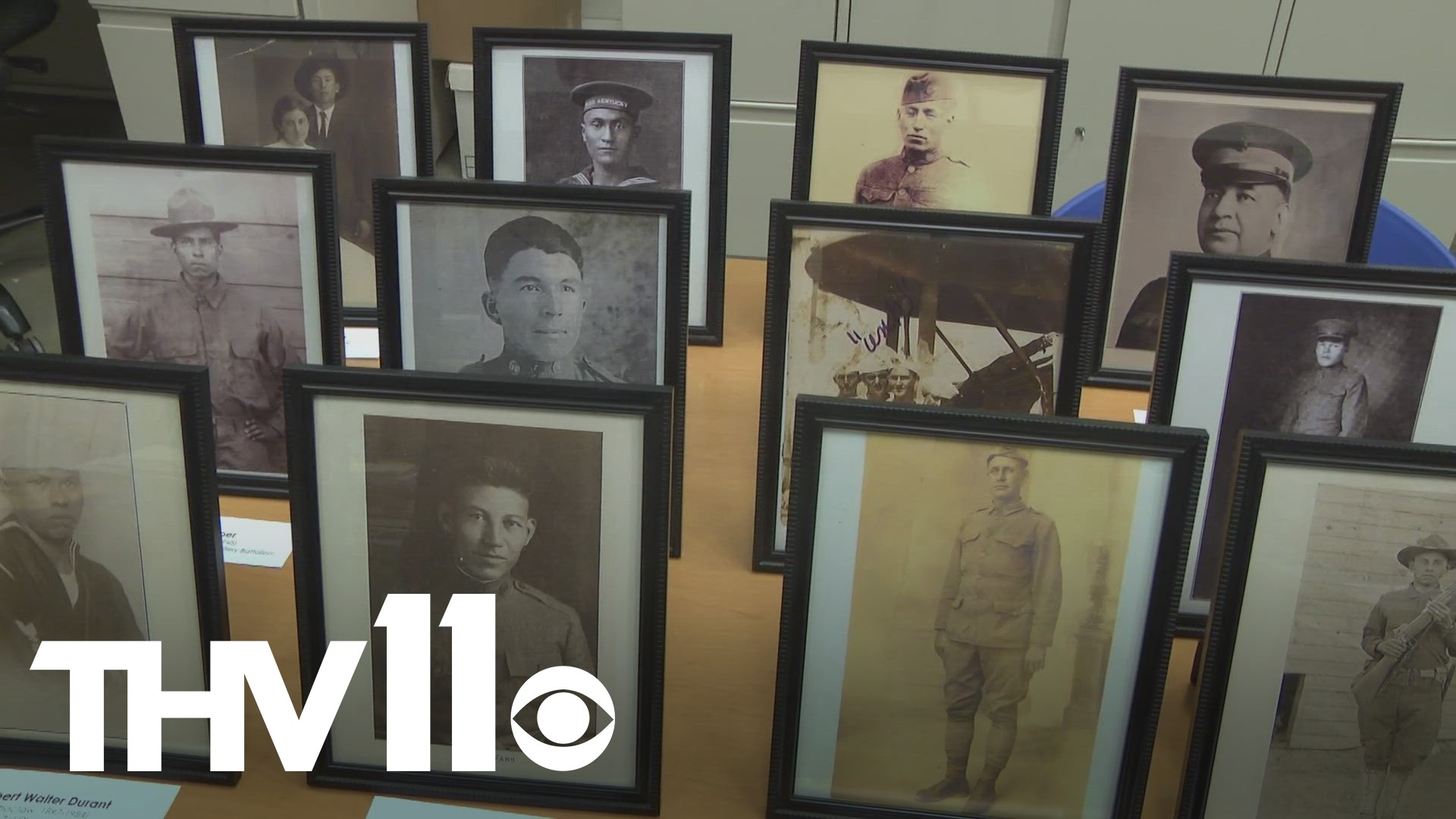ARKANSAS, USA — It’s a detective story that’s more complex and more rewarding than anything you’ll see on network television.
It’s a search for heroes— and it’s going on daily at the Sequoyah National Research Center at UA Little Rock.
Assistant Director of Sequoyah National Research Center, Erin Fehr’s job description is archivist, but the word detective fits when you hear what she has been doing.
“Since 2017 I've been working to identify the approximately 12,000 American Indians and Alaska natives that served in World War One,” she explained.
A mandate from Congress with Arkansas representative French Hill as one of the sponsors, created a task force with the mission of finding possible Medal of Honor candidates among minority soldiers— including Native Americans.
The rich archives of Native American writings at UALR were a perfect starting place, and Erin Fehr turned out to be the perfect detective researcher.
“I am Yup'ik which is an Alaska native tribe. My grandmother was born in Hooper Bay, Alaska. My dad was born in Anchorage and I was born in Helena, Arkansas,” she added.
It’s personal, and that translates to progress. She has now identified over half of the original 12,000.
“Out of those 6,100 men we have identified 24 that qualify for review for a possible Medal of Honor,” she said.
First Lieutenant Dr. Josiah Pallas was part of the Oneida tribe. He was a doctor who fought to save lives in the Argonne Forest in 1918 but lost his life trying to save a fellow doctor.
“And I just think it's important to remember those men who have been all but forgotten,” Fehr described.
To go along with battlefield stories, there are also some unusual ones.
Some like musician first class Guy Maktima, the only Hopi Indian to serve and play cornett in the company band.
“He is one of my favorites. And I actually have talked to his grandson,” she explained.
For Iraq and Afghanistan Veteran Steven Morales of the Cherokee Nation in Oklahoma, the mission is all about families.
“Just to think about the little bit of happiness that this program has been bringing to those families, that’s good medicine,” Morales said.
“It’s been really rewarding to be able to talk to those families and make sure that they know their family member’s service is being remembered,” Fehr said.
Those conversations have produced the answer as to why Native Americans— considering their at times difficult history in the U.S.— would enter the service.
“Some of them said this is our homeland. It doesn't matter what flag is flying. It is still our home and it is our job to protect it. Our family, our land, and our people,” Fehr said.
Erin is making her way through the stories. There are still hundreds to discover, but she knows that a Medal of Honor ceremony for one of her heroes would be the ultimate payoff.
“So satisfied and rewarded that the many, many, many hours that I spent and others have spent were worth it to be able to remember their service and tell their stories for many, many, years to come,” Fehr said.
However, you can bet it’ll happen. Steven Morales wants people to remember the words of a Cherokee chief:
“A buffalo will charge through a storm head first regardless of the fear, regardless of the thunder and lightning,” he said. "In this life, I think us natives, through the things that we have been put through historically, we all have chosen to naturally become those buffalos."

